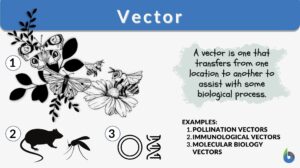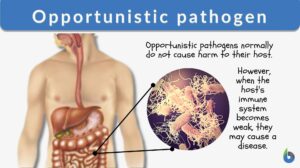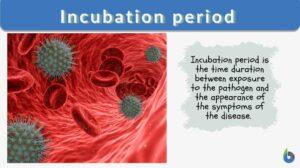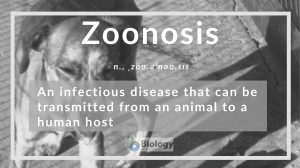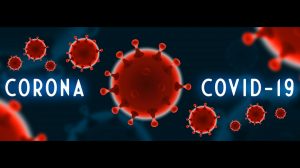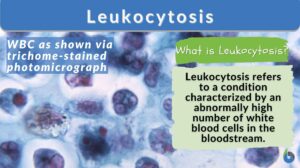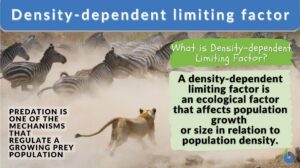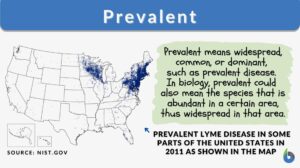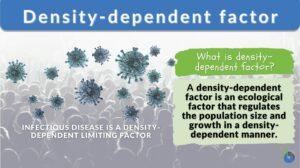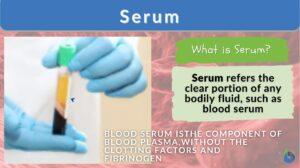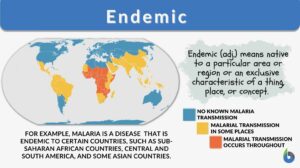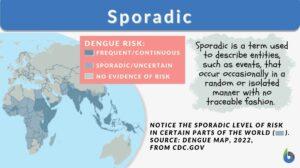Search Results for: infectious disease
Inoculation
Inoculation Definition In Immunology, inoculation is defined as the process of introducing an antigenic substance or... Read More
Reservoir host
Reservoir Host Definition A reservoir host is a host that harbors the pathogen and serves as a source of the infective... Read More
Prodromal period
There are five stages (or phases) of a disease. (Hattis, 2020). These stages are (1) Incubation period, (2) Prodromal... Read More
Opportunistic pathogen
Opportunistic Pathogen Definition How do we define opportunistic pathogen? The opportunistic pathogen is an infectious... Read More
Infectious disease
Definition noun A disease due to the presence of an infective particle, especially a microbial pathogenic agent that is... Read More
Incubation period
Incubation Period Definition The incubation period is the time duration between exposure to the pathogen and the appearance... Read More
Anthroponosis
Definition noun, plural: anthroponoses An infectious disease that can be transmitted from a human host to an animal... Read More
coronavirus COVID-19
Coronavirus Disease 2019 (COVID-19) Coronavirus Disease 2019 (COVID-19) is a contagious coronavirus disease first detected... Read More
Anaerobic bacteria
Bacteria are classified according to the need for oxygen to survive and grow. For example, aerobic bacteria are bacteria... Read More
Leukocytosis
What Is Leukocytosis? Leukocytosis is a condition wherein the number of White Blood Cells (WBCs) is increased above the... Read More
Density dependent limiting factor
What Is A Density-Dependent Limiting Factor? Density-dependent limiting factors are limiting factors, which, depending on... Read More
Density dependent factor
Density-dependent factors are the limiting factors of an ecosystem that regulate population growth in a density-dependent... Read More
Susceptible
Resistance, vulnerability, sensitivity, tolerance, and susceptibility are some highly important terminologies across the... Read More
Communicable disease
Definition noun, plural: communicable diseases A type of disease that is contagious since the agent of the disease may be... Read More
Transmissible disease
Definition noun A contagious disease wherein the pathogen is transmissible from one host to another. Supplement A... Read More
Infectious heredity
Definition noun A non-Mendelian inheritance in which an infectious particle within the cell of the host may bring changes in... Read More
Afferent Nerve
Afferent Nerve Definition The word ‘aferent’ means "steering or conducting something towards a destination". The... Read More
Contagious disease
Definition noun A disease in which the pathogen is transmissible from one host to another. Supplement A contagious disease... Read More
Mosaic disease
Definition noun An infectious disease in plants characterized by the speckled appearance in leaves due to mottling and... Read More
Endogenous pyrogen
Definition noun, plural: endogenous pyrogens A type of pyrogen produced by activated immune cells, and incite the rise in... Read More
Exogenous pyrogen
Definition noun, plural: exogenous pyrogen A type of pyrogen that is of microbial origin, such as the lipopolysaccharide in... Read More
Humoral immunity
Let’s get to know where one should place humoral immunity, the topic of today’s discussion!! By the end of the article,... Read More
Illness period
Definition noun The period during which the clinical symptoms of the disease manifests Supplement The illness period is the... Read More
Trinucleotide repeat disorder
Definition noun, plural: trinucleotide repeat disorders Any of a set of genetic disorders caused by trinucleotide repeats... Read More
Transmission
transmission 1. (Science: microbiology, physiology) A passage or transfer, as of a disease from one individual to another or... Read More




